




Choosing the right spin speed for your washing machine is essential to ensure that your clothes come out clean and well-cared for. But what exactly is the ideal spin speed? In this article, we will explore the factors to consider when determining the best spin speed for your laundry needs.
The spin speed of a washing machine refers to the number of revolutions per minute (RPM) that the drum spins during the spin cycle. A higher spin speed can help extract more water from your clothes, resulting in faster drying times. However, it can also put more stress on the fabric and cause wear and tear over time.
Typically, most washing machines have multiple spin speed options, ranging from around 600 RPM to 1600 RPM. The right spin speed for you will depend on various factors, including the type of fabric you’re washing, the soil level of your laundry, and the level of care you want to provide for your clothes.
If you are washing delicate fabrics such as silk or wool, it’s best to opt for a lower spin speed (around 600-800 RPM) to avoid damaging the fibers. On the other hand, if you’re washing heavily soiled items or large loads, a higher spin speed (1000 RPM or more) can help remove excess dirt and water more effectively.
It’s important to note that a higher spin speed may result in more creasing on your clothes, especially with certain fabrics like cotton. If you prefer wrinkle-free clothes, you can choose a lower spin speed or use the machine’s additional features such as a delicate or anti-crease cycle.
In conclusion, the ideal spin speed for a washing machine depends on various factors, including the type of fabric, soil level, and desired level of care. It’s recommended to read the manufacturer’s guidelines and experiment with different spin speeds to find the perfect balance between cleanliness, quality of care, and drying time for your laundry.
Remember to always check the care labels on your clothes for specific instructions on washing and spin speed recommendations. This will help you maintain the longevity and quality of your garments.
Why Spin Speed Matters
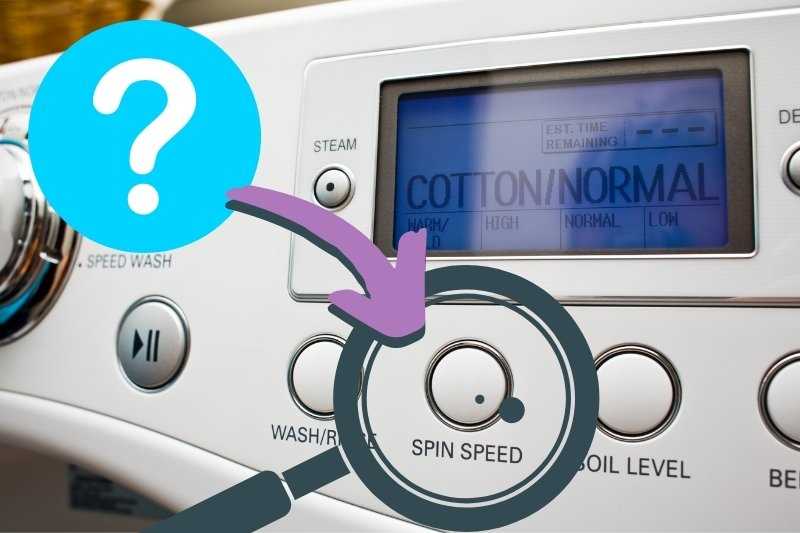
Spin speed is an important factor to consider when choosing a washing machine because it directly affects the efficiency of the washing process and the condition of your clothes.
1. Faster Drying Time
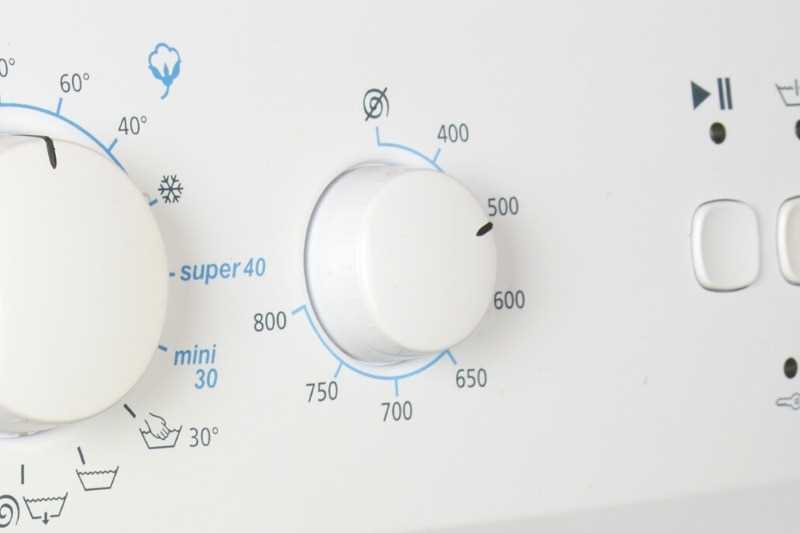
A higher spin speed enables better water extraction from your clothes during the spin cycle. This means that your clothes will come out of the washing machine with less moisture. As a result, they will take less time to dry, saving you time and energy.
2. Improved Cleaning Performance
A faster spin speed creates more centrifugal force, which helps to remove dirt and stains from your clothes more effectively. The increased force pushes the water and detergent through the fabric fibers, dislodging particles and grime for a deeper clean.
3. Reduced Detergent Residue

With a higher spin speed, the washing machine is more likely to rinse off detergent residue from your clothes. This reduces the chances of detergent build-up, which can lead to skin irritation and decrease the lifespan of your garments.
4. Gentler on Delicate Fabrics
While a higher spin speed might not be suitable for all fabrics, modern washing machines often come with adjustable spin speed settings. For delicate fabrics, a lower spin speed can be selected to prevent damage and excessive wearing down of the fibers.
5. Energy and Cost Savings
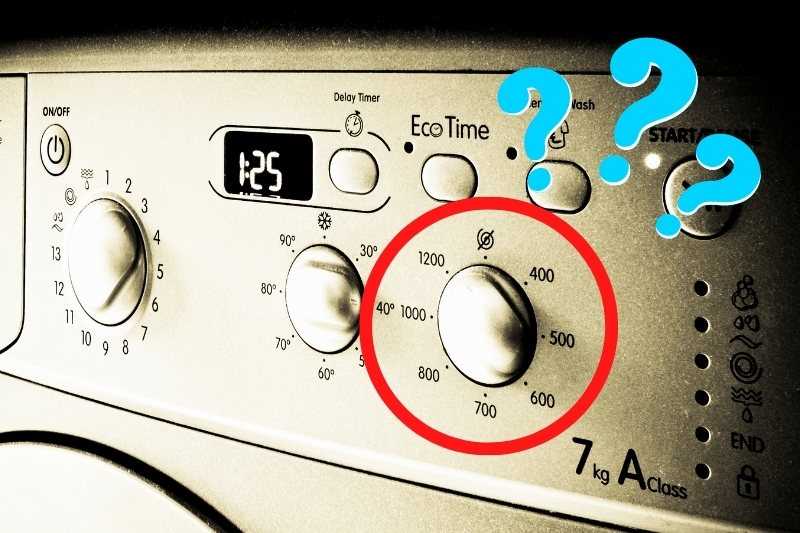
When your clothes come out of the washing machine with less moisture, they require less time and energy to dry. This can lead to energy savings and lower utility bills over time.
Overall, the spin speed of a washing machine is an important consideration that can greatly impact the efficiency of your laundry routine, the cleanliness of your clothes, and even your energy consumption. It’s worth finding the optimal spin speed for your specific needs and fabric types to maximize the benefits mentioned above.
Factors to Consider
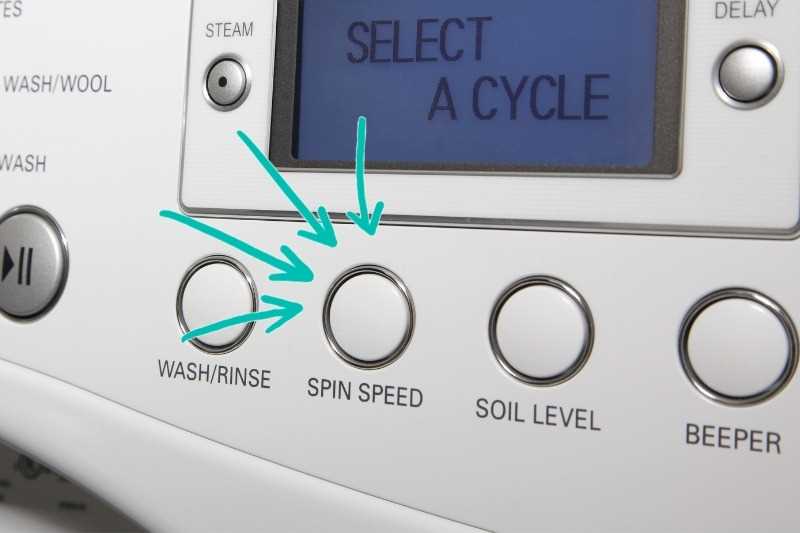
- Type of Fabric: The type of fabric being washed is an important factor to consider when determining the ideal spin speed for a washing machine. Delicate fabrics, such as silk or lace, require a lower spin speed to prevent damage, while sturdier fabrics, such as denim or cotton, can withstand a higher spin speed.
- Level of Soiling: The level of soiling on the clothes also plays a role in determining the ideal spin speed. Heavily soiled clothes may require a higher spin speed to remove dirt and stains effectively, while lightly soiled clothes may only require a lower spin speed.
- Size and Weight of Load: The size and weight of the load can impact the ideal spin speed. Larger and heavier loads may require a lower spin speed to prevent excessive wear and tear on the washing machine and to ensure proper cleaning and rinsing.
- Energy Efficiency: Another factor to consider is the energy efficiency of the washing machine. Higher spin speeds may remove more moisture from the clothes, reducing drying time and energy consumption. However, higher spin speeds may also lead to increased wear and tear on the clothes and the washing machine.
- Noise Level: The noise level produced by the washing machine during the spin cycle is also an important consideration. Some washing machines may produce excessive noise at higher spin speeds, which can be disruptive in a home environment.
- Manufacturer Guidelines: It is always recommended to consult the manufacturer’s guidelines for the specific washing machine model being used. The manufacturer’s guidelines may provide recommendations or restrictions on the ideal spin speed for different types of loads.
Recommended Spin Speeds
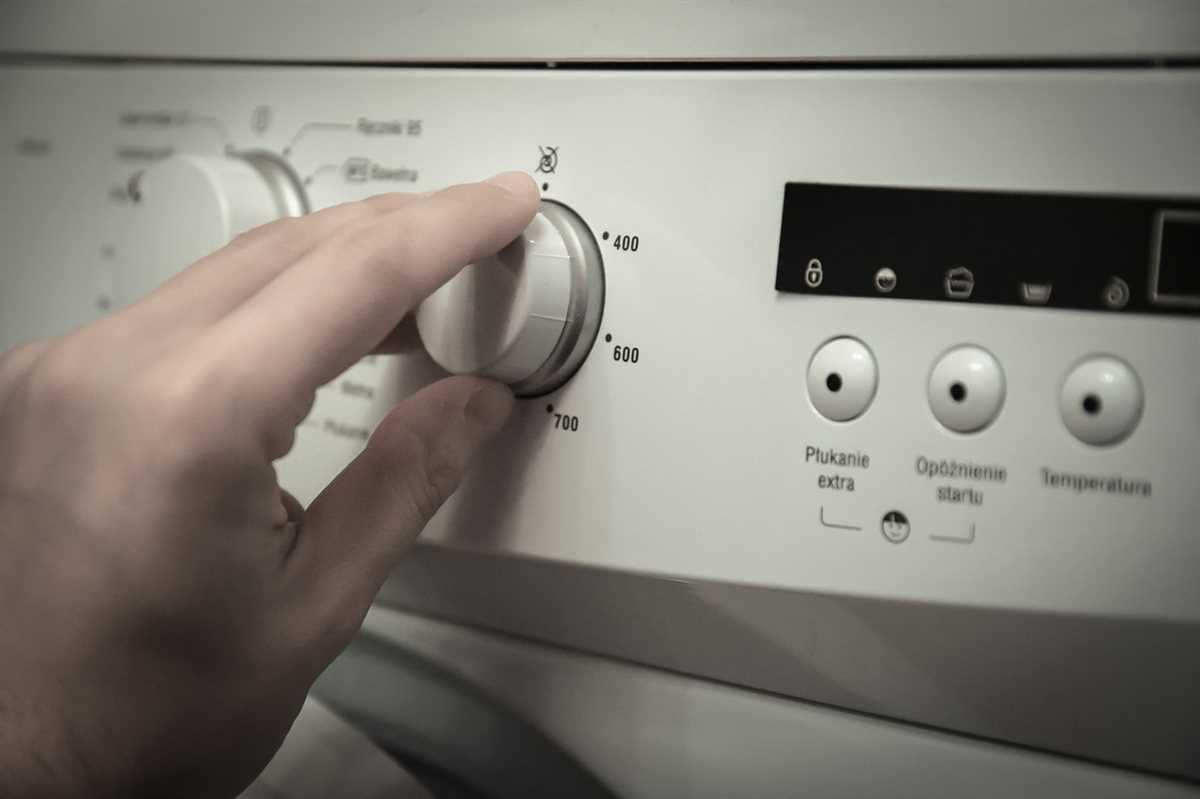
When looking for the ideal spin speed for your washing machine, it’s important to consider a few factors. The right spin speed can ensure the effectiveness of the washing process, as well as the safety and lifespan of your clothes. Here are some recommended spin speeds to keep in mind:
- Low spin speed: This is typically around 400-800 RPM (rotations per minute). Low spin speeds are suitable for delicate fabrics such as silk, lace, or wool. These fabrics require more gentle handling to avoid damage or shrinking.
- Medium spin speed: This is usually between 800-1200 RPM. Medium spin speeds are suitable for most everyday clothes made of cotton, linen, or synthetic materials. They provide a good balance between effective cleaning and maintaining the fabric’s integrity.
- High spin speed: High spin speeds range from 1200-1600 RPM or more. They are ideal for heavy-duty items like towels, bed sheets, or denim. The higher speed helps to remove excess moisture, resulting in faster drying times.
It’s worth noting that the recommended spin speeds may vary depending on the specific washing machine model and type of fabric. Therefore, it’s always a good idea to consult the manufacturer’s instructions and garment labels for the best spin speed recommendations.
Remember, selecting the appropriate spin speed can help enhance the overall performance of your washing machine, protect your clothes, and save energy. So, take the time to find the optimal speed for your laundry needs!
Tips for Optimal Performance
1. Choose the right spin speed
It’s important to choose the right spin speed for your laundry. Higher spin speeds are more effective at removing excess water from your clothes, but they can also cause more wear and tear on the fabric. If you’re washing delicate items, it’s best to use a lower spin speed to prevent damage. On the other hand, heavy-duty fabrics like towels or jeans can withstand higher spin speeds. Refer to the garment’s care label for guidance on the recommended spin speed.
2. Use the appropriate detergent
Using the right detergent for your washing machine can greatly improve its performance. Different types of machines require different detergents, so be sure to check the manufacturer’s instructions. It’s also important to use the appropriate amount of detergent for your load size. Too little detergent may not effectively clean your clothes, while too much can leave behind residue or cause excessive sudsing.
3. Sort your laundry properly
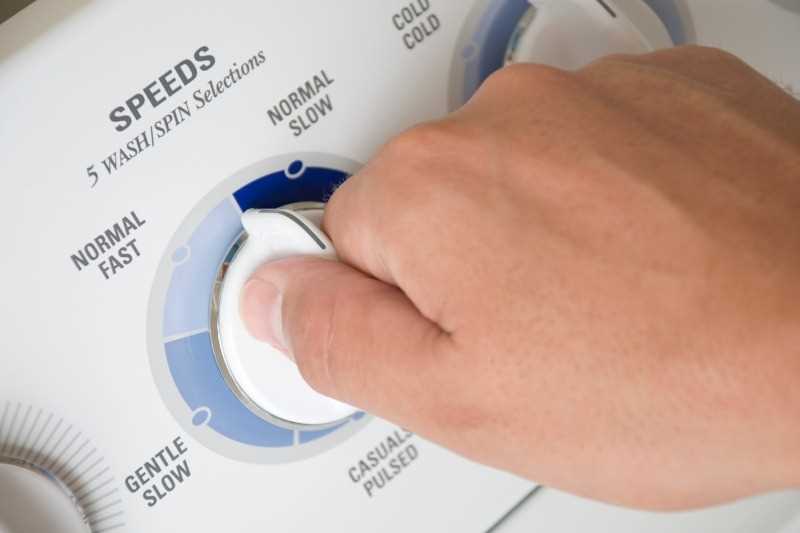
Prior to washing, it’s essential to sort your laundry to prevent color bleeding and fabric damage. Sort your clothes by color, fabric type, and level of dirtiness. Washing heavily soiled items separately can help prevent dirt from transferring to other clothes. By sorting your laundry properly, you can optimize the cleaning efficiency of your washing machine.
4. Do not overload the machine
Overloading your washing machine can result in poor cleaning performance and increased wear and tear on the machine. It’s recommended to follow the manufacturer’s guidelines for load capacity. By properly loading your machine, you allow for better water and detergent distribution, resulting in cleaner clothes.
5. Clean your washing machine regularly
To maintain optimal performance, you should clean your washing machine regularly. Over time, dirt, detergent residue, and limescale can build up inside the machine, affecting its efficiency. Regularly cleaning the drum, filters, and detergent dispenser can help prevent odors, improve cleaning results, and prolong the life of your machine. Refer to the manufacturer’s instructions on how to properly clean your specific machine model.
6. Perform regular maintenance checks
Performing regular maintenance checks can help identify and resolve any issues with your washing machine before they become major problems. Check hoses, connections, and seals for any signs of wear or leaks. Clean the detergent dispenser drawer and inspect it for any blockages. By taking proactive measures, you can ensure optimal performance and extend the lifespan of your washing machine.
FAQ
What is the ideal spin speed for a washing machine?
The ideal spin speed for a washing machine depends on the type of fabric you are washing. For delicate fabrics, a slower spin speed of around 600-800 RPM (revolutions per minute) is recommended. For regular clothing, a spin speed of 1000-1200 RPM is generally sufficient. However, for heavier items like towels or jeans, a higher spin speed of 1400-1600 RPM may be more effective in removing excess water.
Does spin speed affect the cleaning performance of a washing machine?
No, the spin speed of a washing machine does not directly affect the cleaning performance. The cleaning performance is primarily determined by the detergent, water temperature, and agitation during the wash cycle. However, a higher spin speed can help to remove more water from the clothes, resulting in shorter drying times and potentially reducing the need for prolonged drying using a dryer.
What happens if I use a spin speed that is too high for a certain fabric?
If you use a spin speed that is too high for a delicate fabric, it can cause damage to the fabric by stretching, wrinkling, or even tearing it. This is why it is important to follow the care instructions for each item of clothing and use a lower spin speed for delicate fabrics. Using a higher spin speed than recommended for a particular fabric can also result in excess creasing of the clothes, making them more difficult to iron.
Is a higher spin speed always better?
No, a higher spin speed is not always better. While a higher spin speed can help to remove more water from the clothes, it also puts more stress on the fabric and can cause more wear and tear over time. Additionally, using a higher spin speed may result in increased noise and vibration during the spin cycle. It is recommended to use the appropriate spin speed for the type of fabric being washed to ensure both effective cleaning and prolong the lifespan of the clothing.
Can I adjust the spin speed of my washing machine?
Yes, most modern washing machines allow you to adjust the spin speed based on your preference or the type of fabric being washed. There is usually a dial or button on the control panel that allows you to select the desired spin speed. Some washing machines also have automatic spin speed detection, which adjusts the spin speed based on the weight and type of the load. It is important to consult the user manual of your specific washing machine model for instructions on how to adjust the spin speed.











